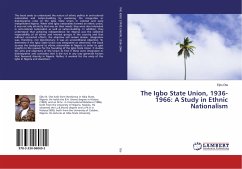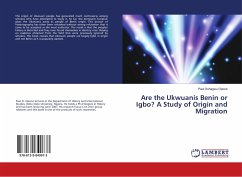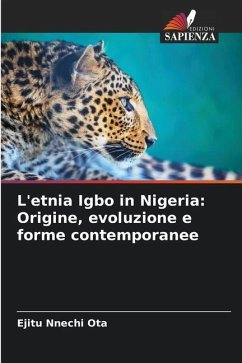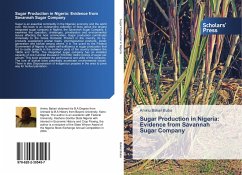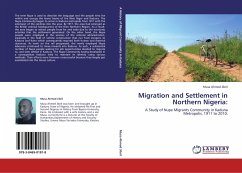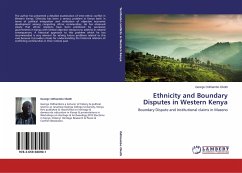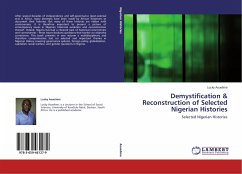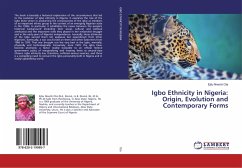
Igbo Ethnicity in Nigeria: Origin, Evolution and Contemporary Forms
Versandkostenfrei!
Versandfertig in 6-10 Tagen
34,99 €
inkl. MwSt.

PAYBACK Punkte
17 °P sammeln!
The book is basically a historical exploration of the circumstances that led to the evolution of Igbo ethnicity in Nigeria. It examines the role of the Igbo State Union in awakening the consciousness of the Igbo as members of an important ethnic group in the context of an emerging Nigerian state in the 1930s. In particular, it establishes the nexus between the people's historical background (including their social, cultural and political attributes) and the important roles they played in the nationalist struggle and in the early years of Nigeria's independence. Ironically, these attributes of ...
The book is basically a historical exploration of the circumstances that led to the evolution of Igbo ethnicity in Nigeria. It examines the role of the Igbo State Union in awakening the consciousness of the Igbo as members of an important ethnic group in the context of an emerging Nigerian state in the 1930s. In particular, it establishes the nexus between the people's historical background (including their social, cultural and political attributes) and the important roles they played in the nationalist struggle and in the early years of Nigeria's independence. Ironically, these attributes of the Igbo earned them not applause but opprobrium from other Nigerians. Eventually, a war was forced on them and other Easterners from 1966 to 1970. That war brought out the very best in the Igbo, mentally, physically and technologically. Conversely, since 1970, the Igbo have become atomized, a factor readily traceable to an official federal government policy of marginalizing and treating them as second-class citizens. Igbo ethnicity has, therefore, suffered serious reverses, and there is a compelling need to reinvent the Igbo personality both in Nigeria and in today's globalizing world.



